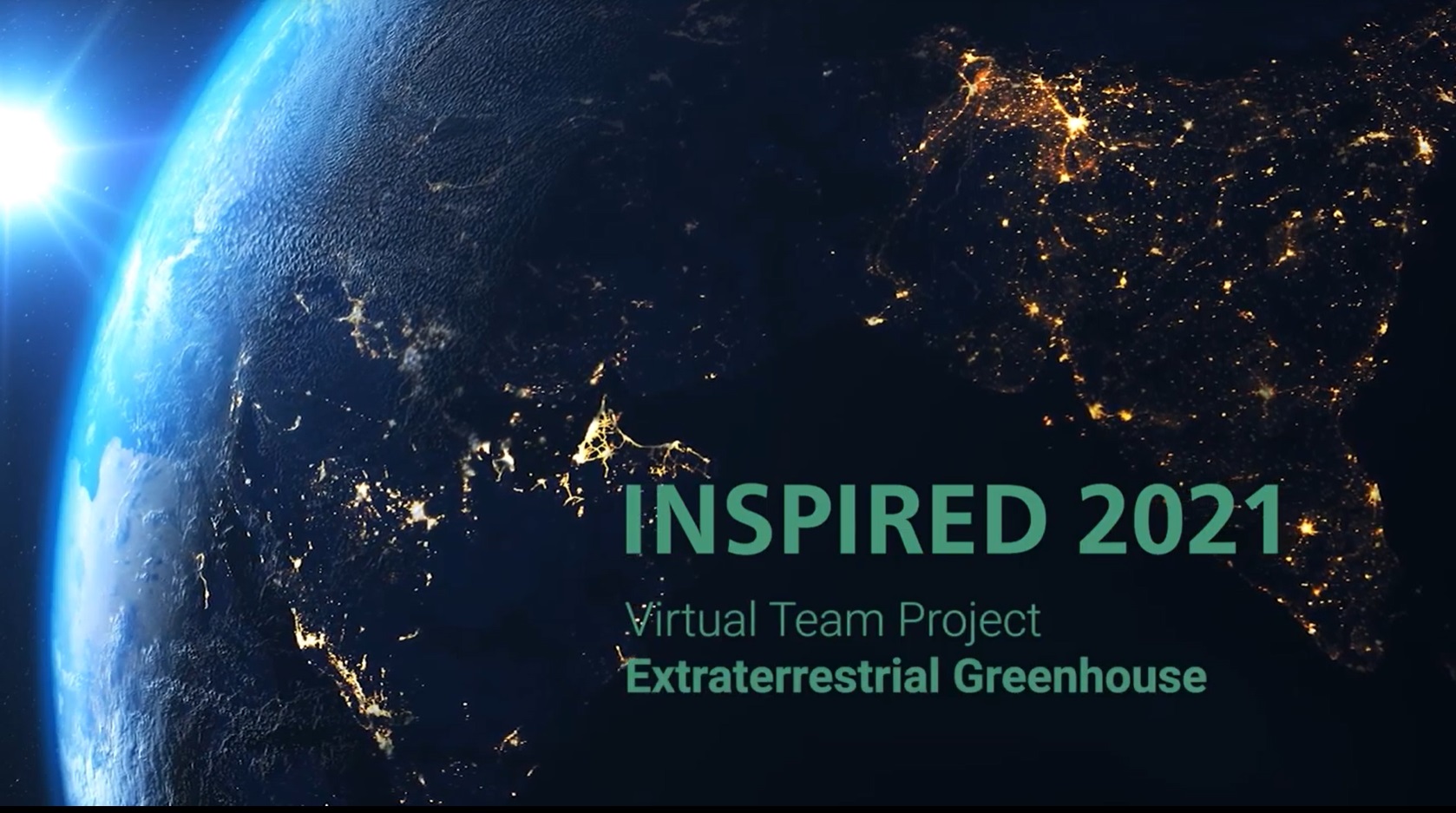
INSPIRED 2021 - Extraterrestrial Greenhouse mission completed
The International Project Week for Interdisciplinary Research-Oriented Digital Learning, INSPIRED by Unite! took place virtually this summer. A video of the summer course "Extraterrestrial Greenhouse" provides insights into the project.
Coordinated by the departments of Mechanical Engineering, Materials Sciences and Biology at TU Darmstadt, the exclusively virtual INSPIRED 2021 summer event brought together space exploration enthusiasts from all over the globe to design a sustainable and efficient greenhouse facility on Mars.
Fifty students took on the challenge and participated in the Virtual Team Project, 43 of them from the Unite! partner universities, TU Darmstadt, Aalto University, Grenoble INP – UGA, Politecnico di Torino, Universitat Politècnica de Catalunya and Universidade de Lisboa. Additionally, the bespoke virtual environment of INSPIRED hosted seven overseas participants (representing the USA, Brazil and Singapore), thus facilitating synchronous and asynchronous teamwork across multiple time zones and continents. A total of 20 different disciplines were represented and the students competed in six interdisciplinary teams.
The jury, consisting of professors from TU Darmstadt, Universidade de Lisboa and the seventh Unite! partner, KTH Royal Institute of Technology, were very impressed by all proposed “Extraterrestrial Greenhouse” concepts. After much deliberation, they chose Team 1 “Amaltheia” as the winning team:
Arda Karaşahin, Politecnico di Torino, Engineering & Management
Daniela Cuffs, University of Lisbon, Biochemistry
Jan Scherff, TUDa, Mechanical and Process Engineering
Louis Ebermann, TUDa, Mechanical and Process Engineering
Marie Neumann, TUDa, Materials Science
Marwan Kaufmann, TUDa, Biomolecular Engineering
Pia Lenhardt, TUDa, Mechanical and Process Engineering
Prerthan Munireternam, National University of Singapore, Computer Science & Physics
(Team mentor: Leslie Hirsch)
Text by Bettina Bastian (Technische Universität Darmstadt), originally published in: www.tu-darmstadt.de/universitaet/international/unite/unite_news_detail_331648.en.jsp
